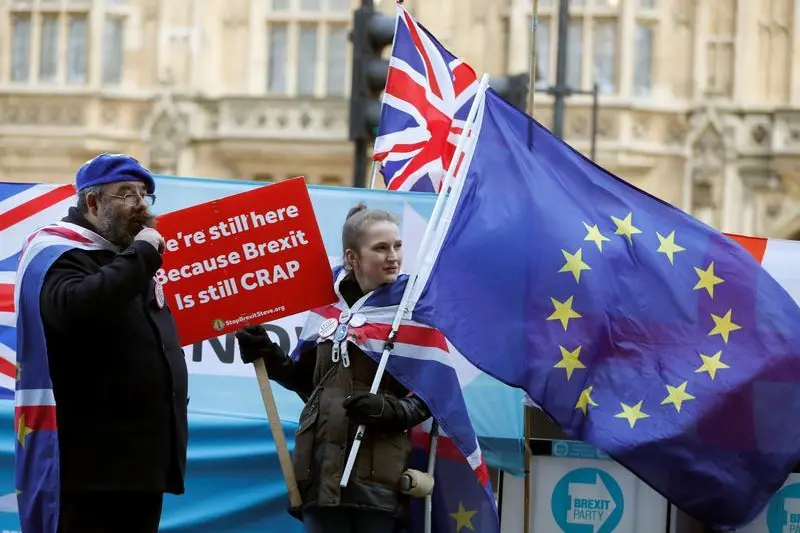PHOTO
LONDON - A general election is the answer. That’s what Britain’s deadlocked parliament concluded on Tuesday evening when it decided to call a national ballot in December. Less clear is the question voters are supposed to be answering. Politicians hoping for direction on Brexit may once again be confounded.
At least Prime Minister Boris Johnson has a clear objective for the country’s third parliamentary election in less than five years. “It’s time to unite the country and get Brexit done,” he told lawmakers. The former London mayor concluded it was better to seek a popular mandate than try to push his deal to leave the European Union through parliament without a majority. Opinion polls suggest he is right: Johnson’s Conservative party is consistently about 10 percentage points ahead of the rival Labour party.
Even so, the decision remains a giant gamble. Johnson repeatedly promised that Britain would leave the EU on Oct. 31. His failure to deliver on that unrealistic pledge will help political rivals, particularly the hard-line Brexit party.
The decision to again extend Britain’s membership of the EU to January 2020 will embolden voters who still hope to reverse the 2016 referendum decision. Polls tracked by the website Britain Elects show a small but persistent majority would now choose to remain in the bloc. And voters have become more unpredictable. Almost half the electorate changed parties in the three general elections between 2010 and 2017, according to the British Election study.
Yet converting broad support for the EU into a parliamentary majority is tricky, especially in an electoral system that historically favours two large parties. Voters will also be swayed by traditional issues like taxes, healthcare, crime and education. And even if pro-EU parties like the Liberal Democrats do well, Britain would almost certainly need another referendum to overturn the result of the last one.
If Johnson wins a majority, his Brexit headache will be far from over. The prime minister will immediately face a contentious decision about whether to extend the post-Brexit transition period, which ends in 2020, or risk breaking ties with the EU before agreeing a new trade deal.
Alternatively, Britain could wake up on Dec. 13 to another fractured parliament and a new deadline looming in seven weeks. In 2017, former Prime Minister Theresa May asked for a Brexit mandate only to lose her majority. The risk is that divided voters once again deliver an inconclusive result, leaving Britain stuck in limbo.
CONTEXT NEWS
- British Prime Minister Boris Johnson on Oct. 29 finally won parliamentary approval for an election that he hopes will break the deadlock over Brexit.
- The election, to be held on Dec. 12, was approved by 438 to 20 votes in the House of Commons.
- "It's time to unite the country and get Brexit done," Johnson told a meeting of Conservative lawmakers late on Oct. 29.
- Labour party leader Jeremy Corbyn cast the election as a chance for real change.
- "A Labour government will be on your side, while Boris Johnson's Conservatives – who think they’re born to rule – will only look after the privileged few," Corbyn said.
- Johnson’s Conservative party has been ahead of Labour by about 10 percentage points in polls carried out in October.
- The pound was broadly unchanged against the dollar on the morning of Oct. 30, at $1.2878.
(Editing by Neil Unmack and Karen Kwok)
© Reuters News 2019





















